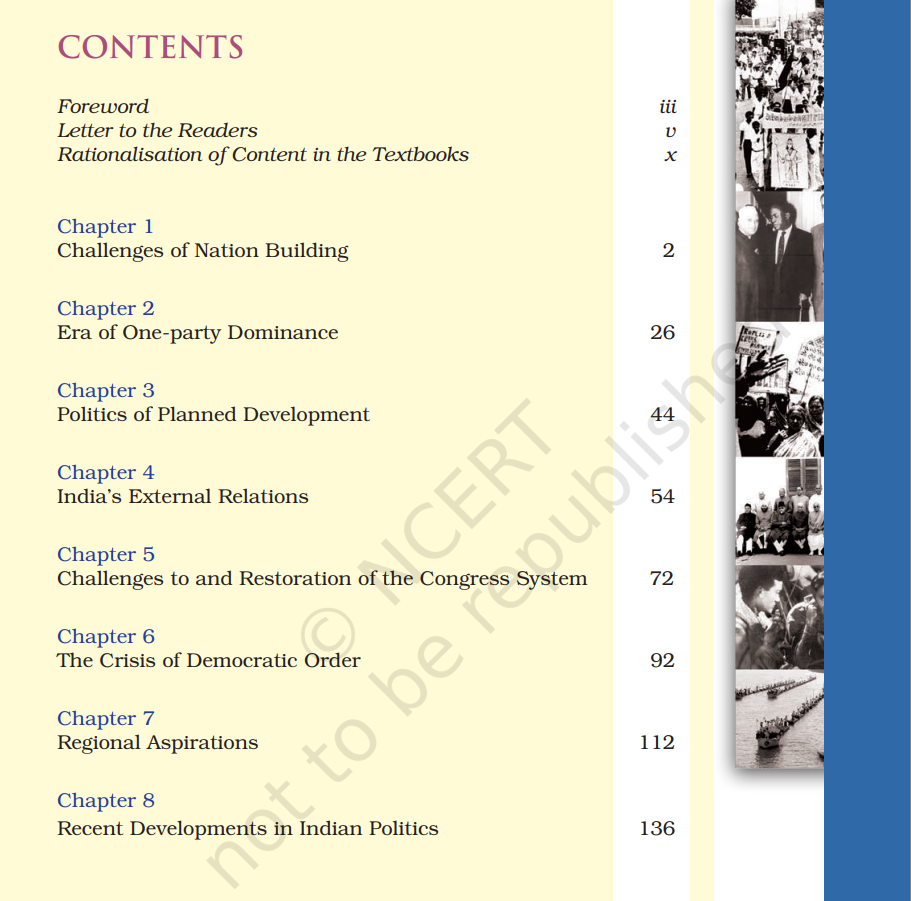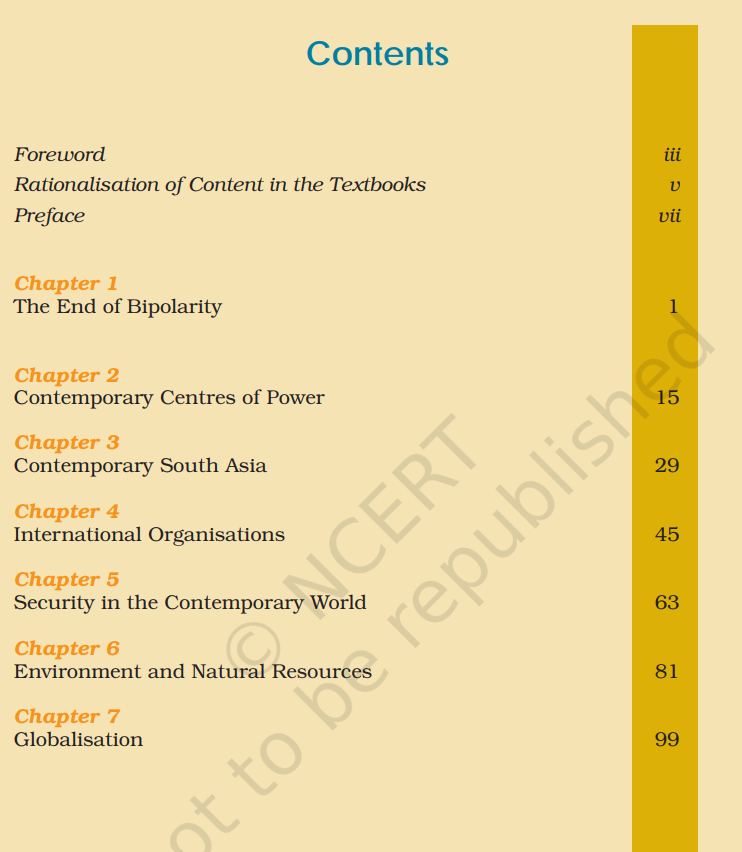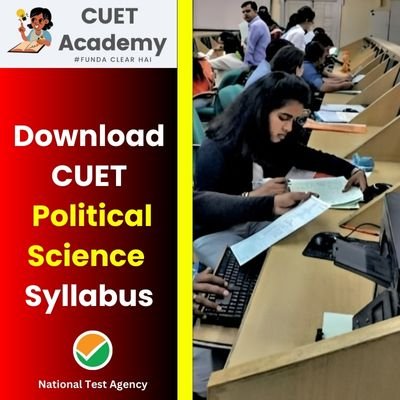In this blog, we will explore the CUET Political Science Syllabus for 2024 exam. If you’re a 2024 CUET Aspirant and wondering what you’ll be studying for your Political Science domain subject, you’ve come to the right place. We’ll break down the topics in a simple, easy-to-understand, and in best-detailed way, so you can get a clear idea about what’s in store for your political science learning journey for cuet entrance exam. This article aims to provide a detailed outline of the CUET political science Syllabus for the 2024 Exam, along with engaging content and CUET Political Science previous year paper to help you excel in the exam. Let’s dive in!
Call Now For FREE Classes: 93100-87900
NTA CUET Political Science Exam Pattern For 2024 Exam
The CUET Examination will be conducted in a computer-based test (CBT) mode. The question paper will be strictly based on the NCERT syllabus for class 12 Political Science.
| Subjects | No. of questions to be attempted | Duration of the exam |
| Language (any one language out of 13 languages ) | 40 out of 50 questions. | 45 minutes for each language |
| Domain Subjects (maximum of 6 subjects from those 27 subjects) | 40 out of 50 questions. | 45 minutes for each subject |
| General Test | 60 Questions to be attempted out of 75 | 60 Minutes (1 hour) |
NTA CUET Political Science Marking Scheme 2024
NTA has confirmed the exam pattern & the CUET marking scheme for the upcoming CUET exam in 2024. As per the official CUET notification, 5 marks will be awarded for every correct attempt, and 1 mark will be deducted for every incorrect attempt.
| Total Marks | 200 |
| Correct Answer | +5 |
| Wrong Answer | -1 |
| Unanswered | 0 |
Call Now For FREE Classes: 93100-87900
CUET Political Science Syllabus For 2024 Exam (Detailed Syllabus)
A clear understanding of the syllabus is essential for success. Here, we break down the CUET History Syllabus 2024 exam in detail and provide you with a link to download the PDF version.
Politics in India Since Independence
- The era of One-Party Dominance: First three general elections, nature of Congress
dominance at the national level, uneven dominance at the state level, coalitional nature
of Congress. Major opposition parties. - Nation-Building and Its Problems: Nehru’s approach to nation-building: Legacy of
partition: the challenge of ‘refugee’ resettlement, the Kashmir problem. Organization
and reorganization of states; Political conflicts over language. - Politics of Planned Development: Five-year plans, expansion of state sector, and
the rise of new economic interests. Famine and suspension of five-year plans. Green
Revolution and its political fallouts. - India’s External Relations: Nehru’s foreign policy. Sino-Indian war of 1962, Indo-Pak
war of 1965 and 1971. India’s nuclear program and shifting alliances in world
politics. - Challenge to and Restoration of Congress System: Political succession after Nehru. NonCongressism and electoral upset of 1967, Congress split and reconstitution, Congress
victory in the 1971 elections, politics of ‘garibi hatao’. - Crisis of the Constitutional Order: Search for ‘committed’ Bureaucracy and Judiciary.
Navnirman movement in Gujarat and the Bihar movement. Emergency: context,
constitutional and extra-constitutional dimensions, resistance to an emergency. 1977 elections
and the formation of the Janata Party. Rise of civil liberties organizations. - Regional Aspirations and Conflicts: Rise of regional parties. Punjab crisis and the antiSikh riots of 1984. The Kashmir situation. Challenges and responses in the North East.
- Rise of New Social Movements: Farmers’ movements, Women’s movements,
Environment, and Development-affected people’s movements. Implementation of
Mandal Commission report and its aftermath. - Democratic Upsurge and Coalition Politics: Participatory upsurge in the 1990s. Rise of
the JD and the BJP. The increasing role of regional parties and coalition politics. UF
and NDA governments. Elections 2004 and UPA government. - Recent Issues and Challenges: Challenge of and responses to globalization: new
economic policy and its opposition. Rise of OBCs in North Indian politics. Dalit politics
in the electoral and non-electoral arena. Challenge of communalism: Ayodhya dispute,
Gujarat riots
Contemporary World Politics
- Cold War Era in World Politics: Emergence of two power blocs after the second world
war. Arenas of the cold war. Challenges to Bipolarity: Non-Aligned Movement, the
quest for new international economic order. India and the cold war. - The disintegration of the ‘Second World’ and the Collapse of Bipolarity: New entities in
world politics: Russia, Balkan states, and, Central Asian states, Introduction of democratic
politics and capitalism in post-communist regimes. India’s relations with Russia and other
post-communist countries. - US Dominance in World Politics: Growth of unilateralism: Afghanistan, first Gulf War,
response to 9/11 and attack on Iraq. Dominance and challenge to the US in economy
and ideology. India’s renegotiation of its relationship with the USA. - Alternative Centres of Economic and Political Power: Rise of China as an economic
power in post- Mao era, creation, and expansion of European Union, ASEAN. India’s
changing relations with China. - South Asia in the Post-Cold War Era: Democratisation and its Reversals in Pakistan and
Nepal. Ethnic conflict in Sri Lanka. Impact of economic globalization on the region.
Conflicts and efforts for peace in South Asia. India’s relations with its neighbors. - International Organisations in a Unipolar World: Restructuring and the future of the UN.
India’s position in the restructured UN. Rise of new international actors: new international
economic organizations, NGOs. How democratic and accountable are the new institutions
of global governance? - Security in Contemporary World: Traditional concerns of security and politics of
disarmament. Non-traditional or human security: global poverty, health, and education.
Issues of human rights and migration. - Environment and Natural Resources in Global Politics: Environment movement and
evolution of global environmental norms. Conflicts over traditional and common property
resources. Rights of indigenous people. India’s stand-in global environmental debates. - Globalization and Its Critics: Economic, cultural and political manifestations. Debates on
the nature of consequences of globalization. Anti-globalization movements. India as an
arena of globalization and struggles against it.
Call Now For FREE Classes: 93100-87900
NCERT Political Science Textbook Class 12th for 2024 CUET Exam


NTA CUET Political Science Syllabus 2024 PDF Download
The NTA (National Testing Agency) conducts the CUET (Common University Entrance Test) to assess students’Political Science abilities for various university admissions. By providing the Political Science syllabus in a downloadable PDF format, we aim to make it convenient and time-saving for aspiring students like you to access and prepare for the CUET Exam 2024 thoroughly.
Download PDF:- NTA CUET Political Science Syllabus For 2024 Exam
FAQ: CUET Political Science Syllabus For 2024 Exam
How to manage class 12th boards and CUET 2024?
There is nothing to manage between both of them, the syllabus for 12th boards 2024 and CUET 2024 is almost the same, what you have to do is study the NCERT Class 12th Textbooks by heart. After completing the syllabus, practice subjective-type questions for boards and objective-type questions for CUET 2024.
What sets the CUET political science program apart from others?
The CUET political science program stands out for its experienced faculty, diverse course offerings, research opportunities, and its commitment to producing well-informed and responsible political scientists.
Is Political Science Domain Subject tough in CUET?
No, for a student having geography subjects in 12th, then the political science domain subject in CUET 2024 is not at all challenging. You need to stick to NCERT Class 12th and practice hard.
Are there opportunities for research in political science at CUET?
Yes, CUET encourages research in political science. Students have the chance to interact in research projects, publish papers, and participate in conferences.
How important is it to practice time management during the exam?
Time management is crucial as the test duration is limited. Practice solving CUET previous year’s question papers within the specified time frame to improve your speed and accuracy.
Call Now For FREE Classes: 93100-87900

